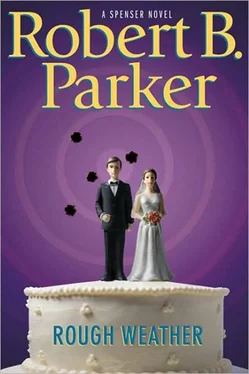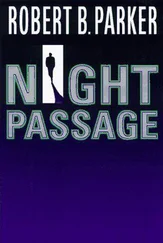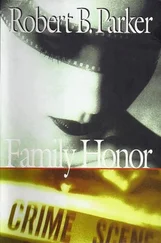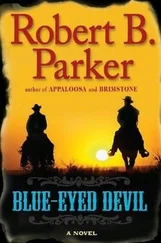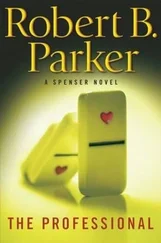I waited. Hawk waited. Fonseca looked at the water bottle. Then he looked out his window at the Providence River. Then he looked back at me.
“Okay,” he said, “we got the logs computerized. You can read them off the screen. You know how to use a computer?”
“Sort of,” I said.
Fonseca sat down, clacked around with his computer for a moment, and then nodded at the screen.
“You know how to scroll through?” he said.
“Yes,” I said.
Fonseca stood and gestured to his chair.
“Be my guest,” he said.
Wearing jeans and a fluffy jacket, Susan came into my office in the middle of the afternoon. With her came the barely discernible scent of her perfume, and the apparent force of her self.
“No patients?” I said.
“Teaching day,” Susan said, “every Wednesday.”
“Oh, yeah,” I said. “Classes over?”
“They are.”
“You want to sit on my lap?” I said.
“No,” Susan said. “I looked into your Dr. Rosselli.”
“And?”
Susan took off her fluffy jacket and settled in to one of my client chairs.
“He’s not a psychiatrist,” Susan said. “His training is in urology. But he does emotional counseling and therapy.”
“Dr. Feelgood?” I said.
“That seems the consensus,” Susan said. “Dispenses and administers psychopharmacologic products to an elite list of wealthy clients.”
“And I’ll bet he makes house calls,” I said.
“He does.”
“Is he doing anything illegal?” I said.
“Not on the surface. My colleagues are contemptuous of him, but any licensed physician can counsel and prescribe.”
“But he can’t call himself a psychiatrist?”
“Not without a psychiatric residency,” Susan said.
“How about psychopharmacology,” I said. “Is it effective?”
“Often,” Susan said. “Depends on the patient and the disorder.”
“But,” I said.
“Not all disorders are manageable by drugs, and if they are used anyway, they can at the very least impede a cure by masking the symptoms.”
“How about a kid who’s been sexually molested?” I said.
“It is debatable,” Susan said.
“Would you use drugs in such a case?”
“I’m a psychologist,” Susan said. “Not a psychiatrist. So I can’t prescribe. When it’s indicated, I have a psychiatrist prescribe for me.”
“Would it seem indicated in the case of Adelaide Van Meer?”
She shifted a little in the chair and crossed her legs. Her jeans fit her as if they’d been personally designed for her by Levi Strauss himself.
“I am not being cautious,” she said. “It’s you and me. But I honestly can’t say. I’ve never talked with Adelaide Van Meer. I saw her briefly and unfortunately at the wedding. My only information is third-hand, originating with a shrink who is guessing.”
I nodded.
“He could be helping, he could be hurting,” I said.
“Yes,” Susan said. “But all of us in the, ah, healing business run that risk.”
“He seems to have gone regularly to the island,” I said, “ever since her attempted suicide.”
“He’s obviously doing something out there,” Susan said. “It would do you no harm to find out what.”
“I will,” I said. “Now do you want to sit on my lap.”
Susan smiled.
“Maybe later,” she said.
Emil Rosselli, M.D., had some very nice office space in a professional building on Route 9 in Chestnut Hill. There was a soft smell of flowers, the sound of quiet music. There was expensive carpeting, and a receptionist with excellent thighs. She and I were both pleased about her thighs, I think. And she allowed me to look at them for a while as I waited for the doctor.
After an appropriate wait, I was taken into the office. It was all white, with indirect lighting and a lot of plants. He was tall and handsome, and looked like the father many people might wish they had… wavy gray hair brushed straight back, even white teeth, calm eyes. Just the man to help you with your problem. His dark blue suit contrasted strikingly with his office.
He gestured me to a chair and sat back quietly with his hands folded on his desk. The desktop was clear except for a futuristic phone.
“I’m Dr. Rosselli,” he said.
I put my card on the desk where he could see it.
“That would have been my guess,” I said. “My name is Spenser. I’m a detective.”
He nodded gravely.
“You’re treating Adelaide Van Meer,” I said.
Rosselli didn’t say anything. He simply raised his eyebrows.
“You go regularly every two weeks to Tashtego Island and have done so since shortly after she attempted suicide five years ago.”
Rosselli pursed his lips.
“I’m curious about her condition,” I said.
He put them both together, pursing his lips and arching his eyebrows. Artful. I waited. He waited. I had a lot of experience at waiting. Apparently, so did he. It was turning into a wait-off when he probably figured that time is money and decided to cut it off.
“I am a physician,” he said. “If I were treating this person and she did have a condition, patient confidentiality would prevent me from speaking of it.”
I waited a little more, just to prove that I could, and then I said, “Not only are these questions of interest to me, they are of pressing interest to the Boston Police, the Massachusetts State Police, and the Federal Bureau of Investigation.”
Rosselli smiled faintly.
“You can discuss it quietly with me,” I said, “and suffer no ill effects, or I can get representatives from all three of the aforementioned agencies in here to tear your life apart.”
He stared at me for a moment. Then he said, “Perhaps I should call my attorney.”
I raised my eyebrows and said nothing. He leaned forward and put his hand on the phone. I pursed my lips. After a time he leaned back from the phone.
“What specifically would you like to know?” he said.
“What are you treating her for?”
“Neurasthenia,” he said.
“Do people still suffer from that?” I said.
He made a slight dismissive motion of his head. Next question.
“How are you treating her?”
“Counseling and medication,” he said.
“What are the medications?”
“Nothing you would be likely to understand,” Rosselli said.
“Doubtless you’re right,” I said. “Give me a list.”
“Why?”
“So I may show it to someone who will understand it.”
Rosselli shook his head.
“I’m sorry, that is really just too intrusive.”
“Which cops would you like to give it to?” I said. “City, state, or federal?”
He sat in silence for another time. I thought about arching my brows and pursing my lips, but decided it was overacting. Then he leaned to his phone and pressed a button.
“Betsy,” he said. “Please bring me the protocol for Adelaide Van Meer.”
We waited, and in a minute or so, Ms. Thighs glided in with a printout page and handed it to Rosselli. He shook his head and nodded at me. She widened her eyes and gave me the printout. It seemed to be legit. I folded it and put it in my inside pocket. Ms. Thighs glided out.
“Would, ah, neurasthenia be causative in her suicide attempt?” I said.
“She denies that there ever was a suicide attempt,” Rosselli said. “But certainly neurasthenia can lead one to attempt it.”
“Was she ever sexually molested?” I said.
Rosselli seemed almost to recoil, as if I had suddenly shown him something repulsive.
“Molested?” he said.
I nodded enthusiastically.
“Of course not,” he said.
Читать дальше
